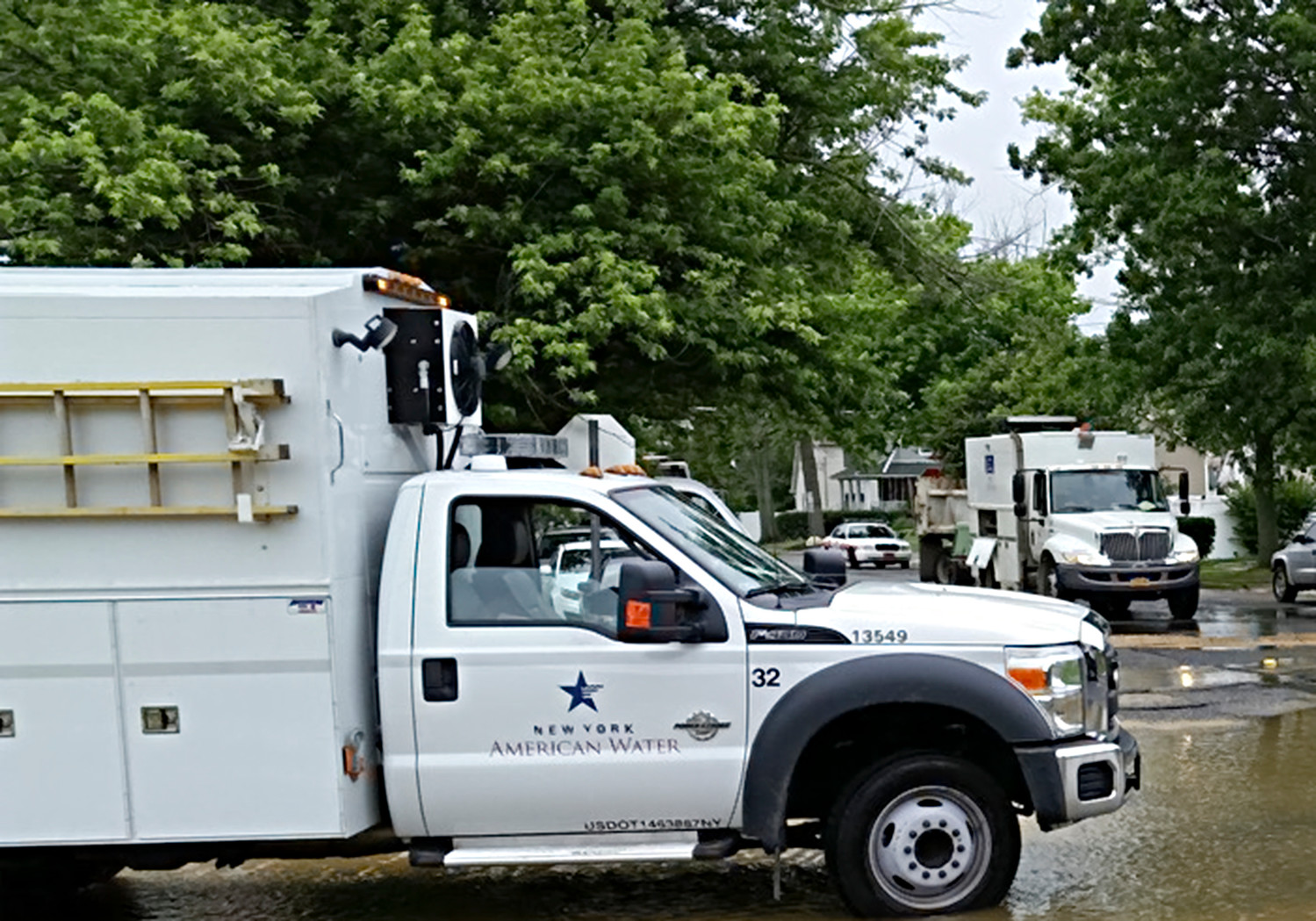State PSC to probe water bill hikes
The New York State Public Service Commission is investigating hundreds of complaints from New York American Water ratepayers who say their bills doubled after new water meters were installed. In an email, PSC spokesman James Denn confirmed the probe.
Baldwin and Baldwin Harbor are among the communities in NYAW’s service area — specifically, within the private company’s Lynbrook water district.
NYAW President Carmen Tierno said in an emailed statement that the utility “takes every customer contact seriously. The accuracy of our meters is critical to our service commitment. Our customer service team has already been working with several customers regarding questions about their water bills.”
The company is “conducting a detailed review using advanced analytics and meter testing to confirm their accuracy,” added Tierno, who was to share the methodology used during the review with the PSC after press time on Monday. “The results of our analysis and testing will be shared transparently with our customers and stakeholders. New York American Water is fully committed to our customers and the accuracy of its billing.”
State Sen. Todd Kaminsky, a Democrat from Long Beach, and Hempstead Town Supervisor Laura Gillen wrote a joint letter on July 27, asking the PSC to investigate NYAW in the wake of “widespread complaints by American Water customers living in the Town of Hempstead who have experienced a sharp, inexplicable increase in their monthly water bills.”
Kaminsky shared the letter on his Facebook page, leading hundreds of people to share their frustrations with the utility.
“My bill doubled this month,” Rose Panzarella commented. “I am still one person and living at same address for 13 years. Plus I no longer have the portable Jacuzzi I had last year.”
“Our bill has doubled and we stopped running our sprinklers, and it still didn’t budge,” Erin English said.
Kaminsky called the increases “dramatic and questionable. Long Islanders pay a great deal for their water, and can only get it from one source. It’s critical that billing be fair and justifiable.”
Additionally, ratepayers are seeing an increase in their bills because of the company’s ongoing infrastructure projects. At a July 26 public hearing about NYAW’s plans to erect a metal building to protect tanks during the winter and to add trees in front of its iron-removal plant in Valley Stream, John Kilpatrick, NYAW’s engineering manager, said that “a small percentage of the water bill [increase] is due to all the infrastructure we’re doing.”
“The cost of the infrastructure gets shared by everyone in our service district,” he added.
This isn’t NYAW’s first run-in with the PSC this year. The agency announced on July 12 that it had found that the company intentionally deceived the state by withholding information from the commission that caused water rates to be set “artificially high.” The agency ordered a special court proceeding against NYAW in response to the findings, and is looking into hiring an independent monitor and possibly requiring the utility’s shareholders to pay the costs of the company’s “failures.”
That same day, State Assemblywoman Christine Pellegrino, a Democrat from West Islip, announced her intention to introduce two bills that could push NYAW out of the county. The first would direct State Comptroller Thomas DiNapoli’s office to fund a feasibility study to determine the most efficient, cost-effective and comprehensive means for a public entity to supply water to all 46 Nassau County communities under NYAW’s purview. The second bill would amend a portion of state property tax law that exempts private water companies regulated by the PSC, and that operate within cities of more than a million people, from paying property taxes. The statute does not apply to counties.
Melissa Koenig contributed to this story.






